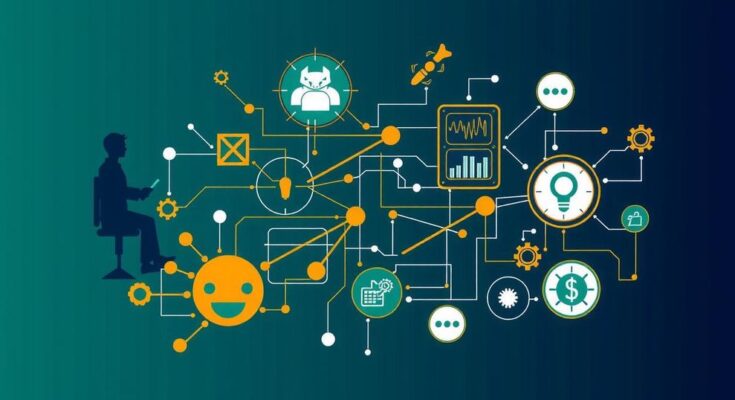The article explores how technology can facilitate the inclusion of over 1 billion individuals living with disabilities in the workforce. It emphasizes the economic and social benefits of incorporating edtech, fintech, remote work, and networking tools to create accommodating environments. By addressing existing barriers, we can unlock the potential of people with disabilities, driving greater innovation and productivity in the economy.
Approximately one-sixth of the global population lives with disabilities, facing significant barriers to workforce integration and economic participation. Digital transformation, driven by technology in fields like edtech, fintech, and remote work, can significantly enhance opportunities and inclusion for these individuals. By harnessing innovative solutions, we can create an environment where people with disabilities thrive and make invaluable contributions to the workplace. In an era marked by rapid technological evolution, it’s crucial to ensure that individuals with disabilities are not marginalized. Their diverse talents and unique perspectives can enrich the workforce, benefiting society collectively. The key lies in embracing adaptive technology and promoting inclusive practices to unlock the full potential of this population. Despite making up the largest minority group globally, those with disabilities often encounter skepticism and misunderstanding. Many disabilities are invisible, making it challenging to address their inclusion. Alarmingly, people with disabilities earn significantly less and have lower employment rates than their counterparts without disabilities, calling for urgent systemic changes in labor practices and educational attainment. To foster equitable workplace prospects, we must prioritize education and job training for disabled individuals, equipping them with vital 21st-century skills. This proactive approach paves the way for better career opportunities, ultimately benefiting the economy. Companies championing disability inclusion experience heightened innovation and productivity, proving that a diverse workforce drives growth. Digital advancements can transform lives through accessible fintech, enabling financial independence for disabled individuals who historically have limited access to banking services. Edtech breaks physical barriers, allowing students with disabilities to learn from home, with tailored resources and accommodations that cater to their needs, making education more accessible and equitable. Remote work opportunities can eliminate travel barriers for those with disabilities, offering flexibility and tailored workspaces that enhance their productivity. With technology facilitating communication, individuals can showcase their abilities beyond their disabilities, stirring confidence and driving engagement. The shift to remote work could democratize opportunities for many who have long been sidelined. Networking, a crucial avenue for job success, can often be daunting for disabled individuals due to physical barriers. However, online platforms like LinkedIn empower them to build connections and rapport through virtual means, leveling the playing field. Such platforms foster relationships that can lead to valuable job opportunities, leveraging assistive technologies that simplify online interactions effectively. In the face of economic shifts, creating an inclusive workforce transcends mere legal compliance; it must be a fundamental corporate goal. Firms that overlook this potential not only deprive themselves of talent but risk losing significant market growth. Thus, the imperative exists to harness technology’s power in fostering a more inclusive world of work.
With more than 1 billion people with disabilities worldwide, their potential often remains untapped due to systemic barriers in education and employment. The United Nations recognizes that the inclusion of people with disabilities is vital for achieving broader socio-economic objectives. Digital transformation and the Fourth Industrial Revolution present unique opportunities to pivot strategies toward inclusivity, thus enhancing participation in the global economy. For meaningful change, society must embrace the use of technology across multiple sectors to create supportive environments where individuals with disabilities can excel in the workforce.
In conclusion, the intersection of technology and disability inclusion holds transformative potential for society. By prioritizing tailored digital solutions in education, finance, and workplace practices, we can empower individuals with disabilities, enhance their economic contributions, and ultimately enrich our communities. Embracing diversity not only fosters innovation but also cultivates a more equitable workforce that stands to benefit everyone.
Original Source: www.weforum.org



